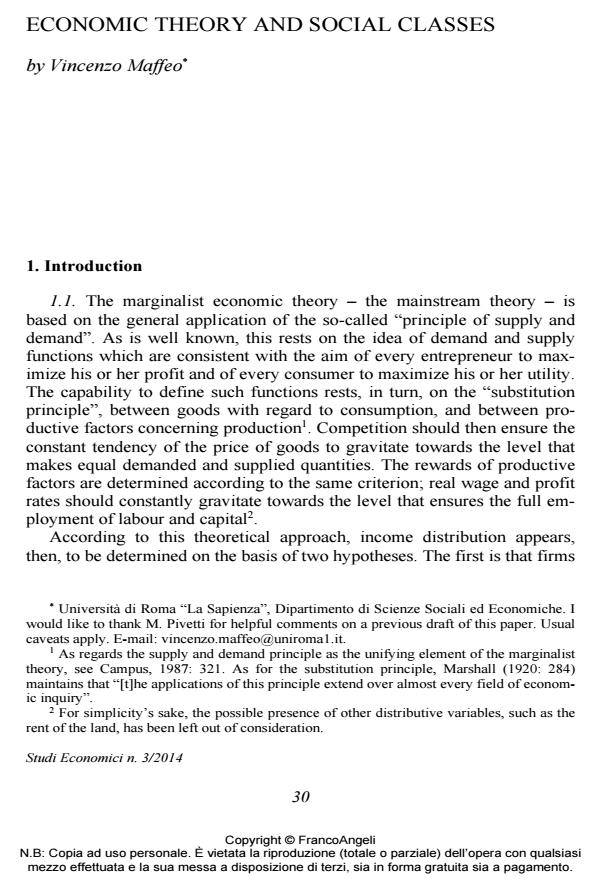Economic theory and social classes
Titolo Rivista STUDI ECONOMICI
Autori/Curatori Vincenzo Maffeo
Anno di pubblicazione 2015 Fascicolo 2014/114
Lingua Inglese Numero pagine 21 P. 30-50 Dimensione file 92 KB
DOI 10.3280/STE2014-114002
Il DOI è il codice a barre della proprietà intellettuale: per saperne di più
clicca qui
Qui sotto puoi vedere in anteprima la prima pagina di questo articolo.
Se questo articolo ti interessa, lo puoi acquistare (e scaricare in formato pdf) seguendo le facili indicazioni per acquistare il download credit. Acquista Download Credits per scaricare questo Articolo in formato PDF

FrancoAngeli è membro della Publishers International Linking Association, Inc (PILA)associazione indipendente e non profit per facilitare (attraverso i servizi tecnologici implementati da CrossRef.org) l’accesso degli studiosi ai contenuti digitali nelle pubblicazioni professionali e scientifiche
The marginalist economic theory believes that the effectiveness of the collective action exerted by a social class as a whole conflicts with the hypothesis of competition (perfect competition). A question of method is at the root of this view: the marginalist theory only takes into consideration the individual maximizing behaviour of workers, capitalists and entrepreneurs. In this way it excludes from the analysis the study of social links, which, as a matter of fact, are the conditions for collective action. In the classical approach, economic relations are instead affected by the institutions and social conventions that characterize each particular historical moment. As a consequence, the classical notion of competition (free competition) does not exclude a role for the social links that can justify collective action and, at the same time, make it effective. This characteristic of the classical approach is particularly considerable as concerns the theory of income distribution. A re-proposal of the classical theory of wages which takes into consideration the development and complexity of the institutions that, these days, condition the conflict for the distribution of income, cannot actually disregard the role of collective action.
Parole chiave:Collective action, Competition, Classical theory, Marginalist theory, Income distribution, Social classes
Jel codes:A10, B12, B13, B40, D33, D41, E02, E24, E25
Vincenzo Maffeo, Economic theory and social classes in "STUDI ECONOMICI " 114/2014, pp 30-50, DOI: 10.3280/STE2014-114002